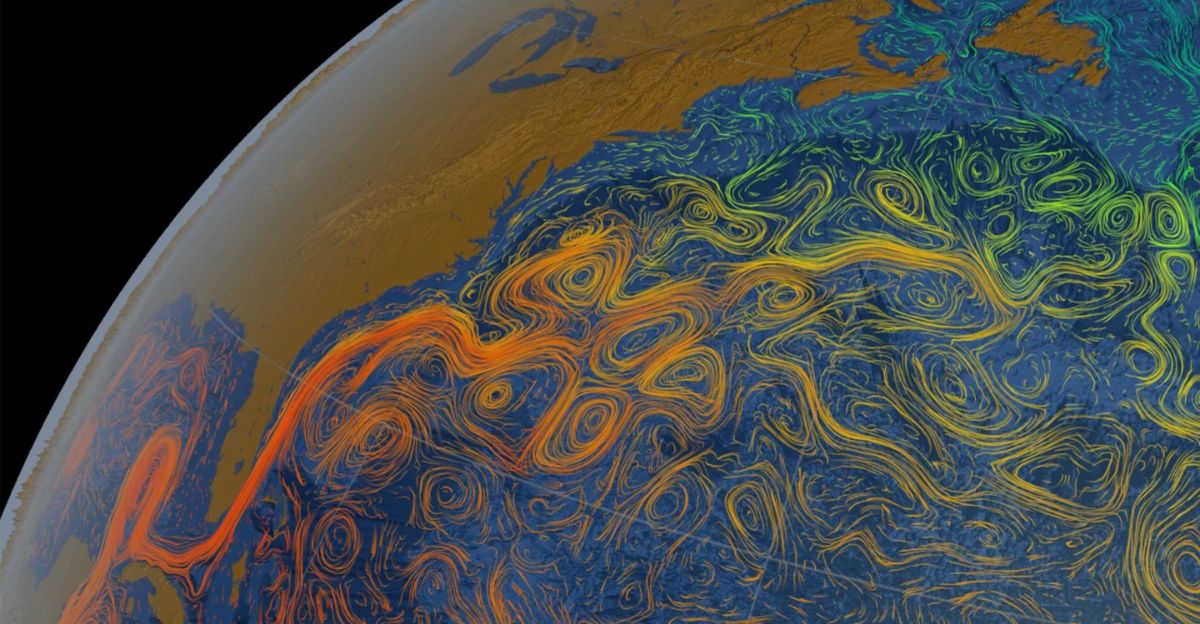
If you thought climate change was just about hotter summers and weird weather, think bigger. Scientists have confirmed that the Antarctic Circumpolar Current (ACC), the strongest ocean current on the planet, is slowing down. This isn’t just some obscure ocean fact—it has massive consequences for weather, marine life, and sea levels. If this current keeps weakening, it could throw the entire planet’s climate system into chaos.
What Is the Antarctic Circumpolar Current (ACC)?
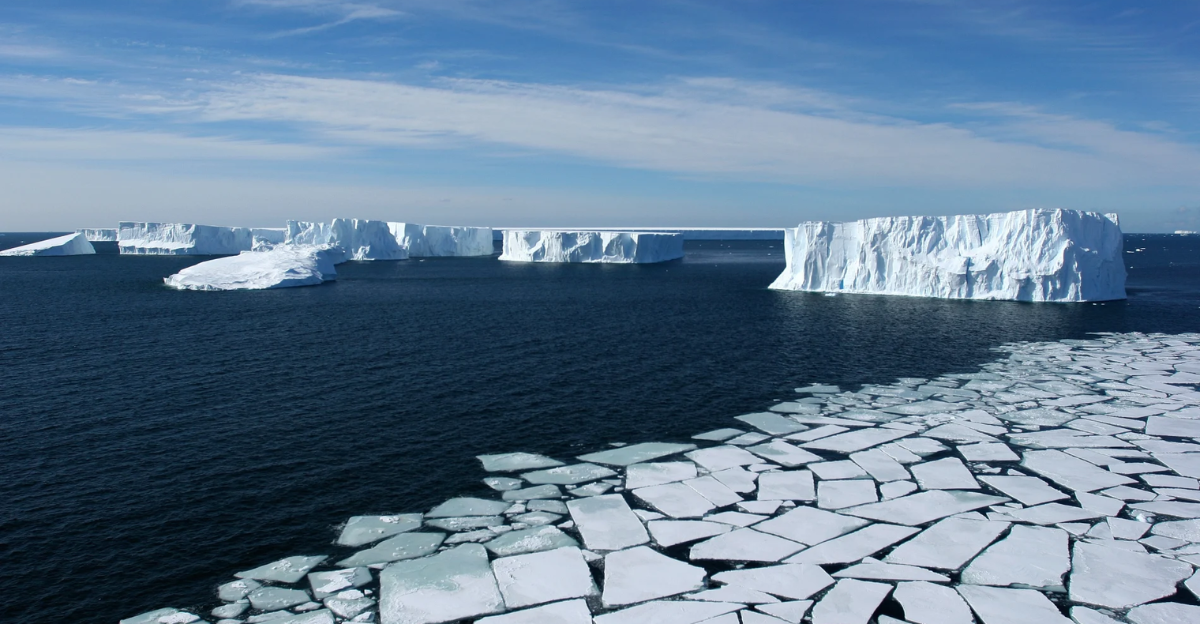
The ACC is the most powerful and influential ocean current on Earth. It circles Antarctica, keeping cold waters trapped around the pole while regulating global ocean temperatures. It’s the engine that connects the Atlantic, Pacific, and Indian Oceans, making it crucial for maintaining weather patterns and keeping Earth’s climate in balance. Without it, things would look very different.
Why Is the ACC Slowing Down?

Scientists point to two main culprits—climate change and the rapid melting of Antarctic ice. Rising global temperatures are disrupting ocean density, while massive amounts of freshwater from melting glaciers are diluting the salt levels in the current, weakening its ability to flow properly. These changes are happening much faster than scientists predicted, making the ACC’s slowdown one of the most alarming signs of climate instability.
How This Affects Global Weather Patterns
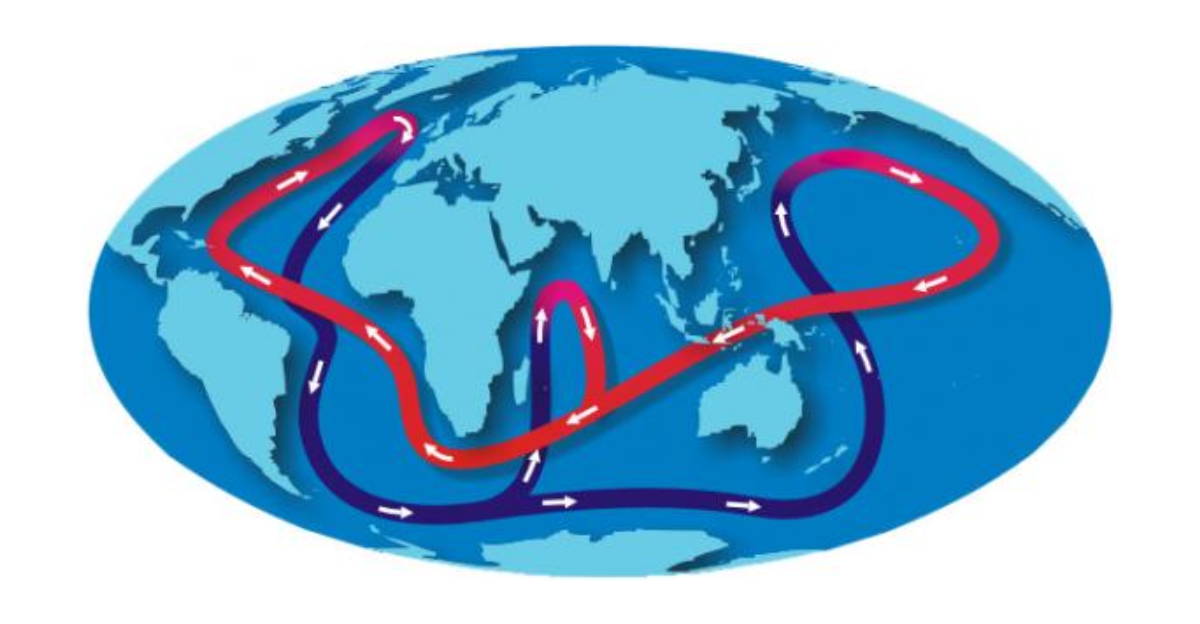
So, if the ACC continues to weaken, weather patterns around the world will be thrown off balance. Some regions will experience extreme heatwaves and droughts, while others will see more intense storms and hurricanes. Europe and North America could face harsher winters, while places like Australia and South America may struggle with prolonged dry spells. The ACC acts like Earth’s climate regulator, and without it functioning properly, the planet’s weather could become far more extreme and unpredictable.
The Threat to Marine Life
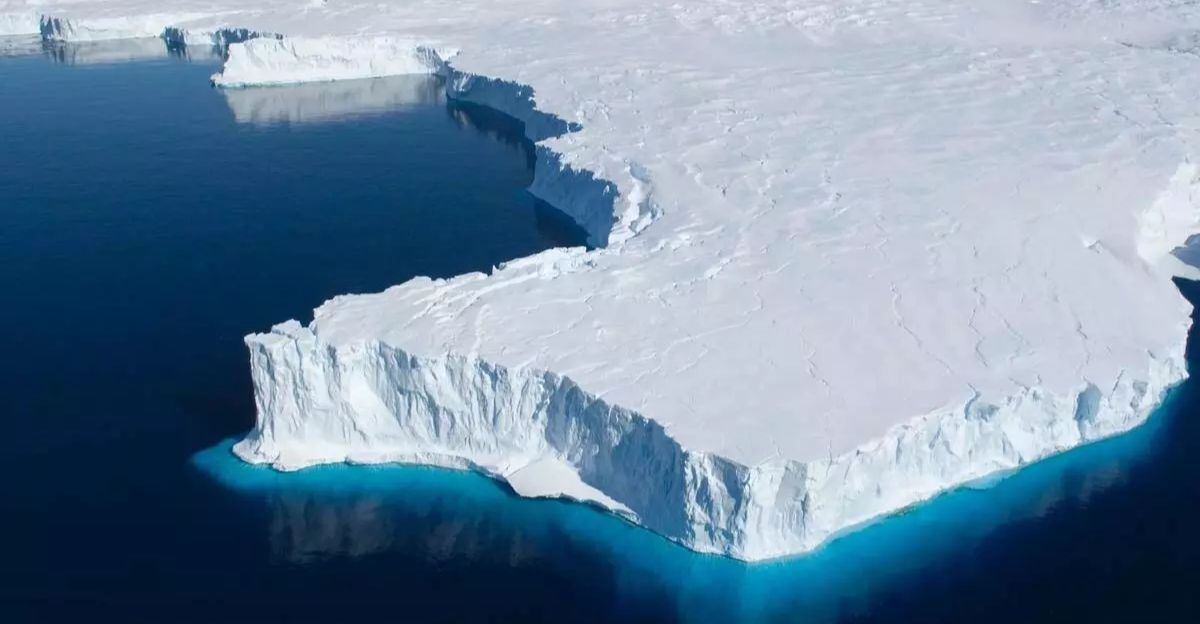
The ACC doesn’t just move water—it moves life. It carries nutrients that fuel entire marine ecosystems, supporting everything from plankton to the largest whales. As it slows, those nutrients get disrupted, causing food shortages that ripple through the ocean food chain. Fish populations could shrink, commercial fisheries could collapse, and entire marine ecosystems could be thrown into turmoil. The slowdown of this current isn’t just a problem for the ocean—it’s a problem for every species that depends on it, including humans.
Rising Sea Levels Could Get Worse
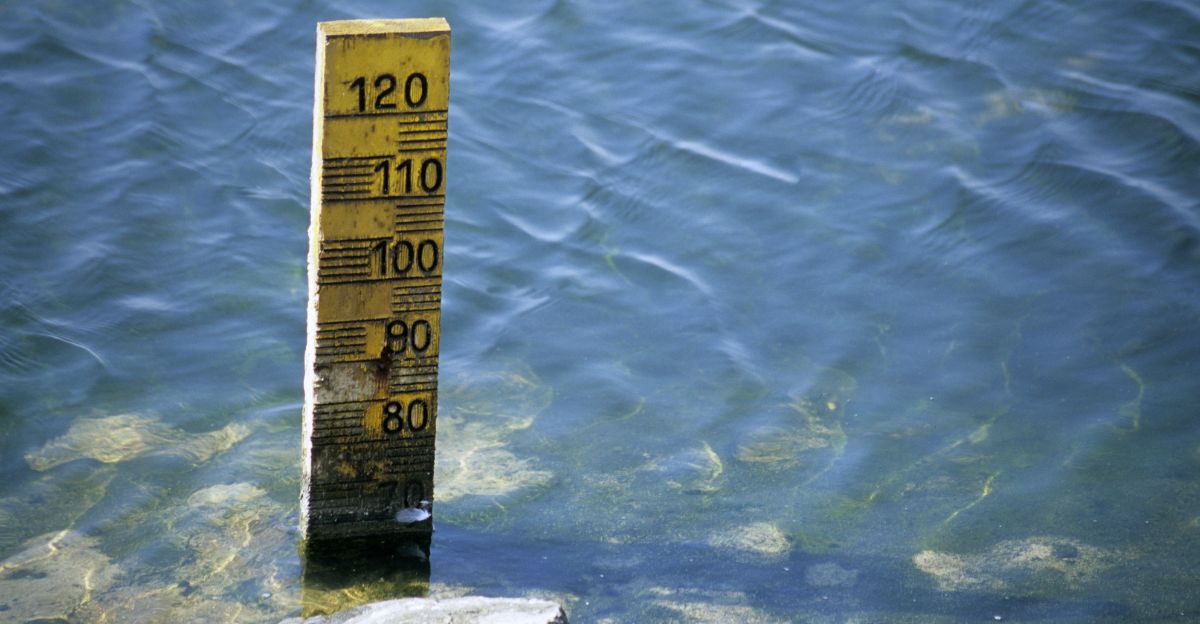
The ACC plays a major role in regulating global sea levels, helping to distribute ocean waters more evenly around the world. With it weakening, we could see faster rising waters in certain regions, putting coastal cities like New York, Miami, and Tokyo at even greater risk of flooding. The added melting of Antarctic ice only adds fuel to the fire, or in this case, more water to an already rising ocean.
Ocean Heatwaves Are Becoming More Frequent
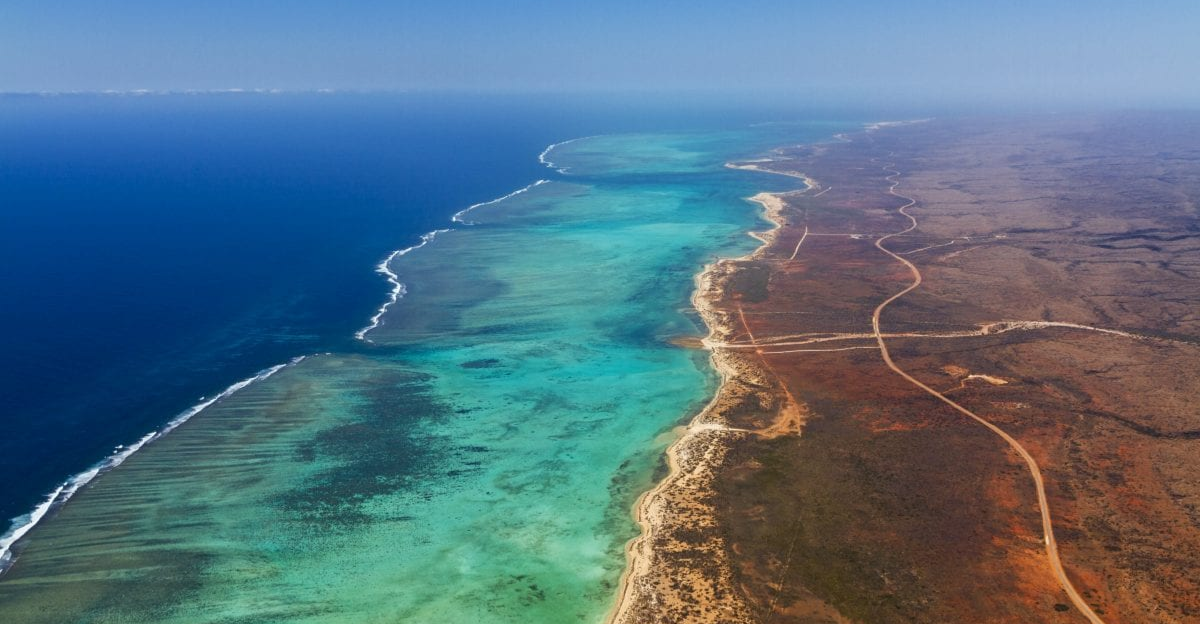
The ACC helps spread heat across the planet’s oceans, preventing any one region from overheating. But as it weakens, heat is getting trapped in the Southern Ocean, leading to dangerous marine heatwaves. These heatwaves cause coral bleaching, kill off fish populations, and disrupt fragile ocean ecosystems. The ocean absorbs more than 90% of Earth’s excess heat, and if it loses its ability to circulate that heat properly, we could be looking at devastating consequences for marine life and global climate stability.
The Ice Melt Feedback Loop
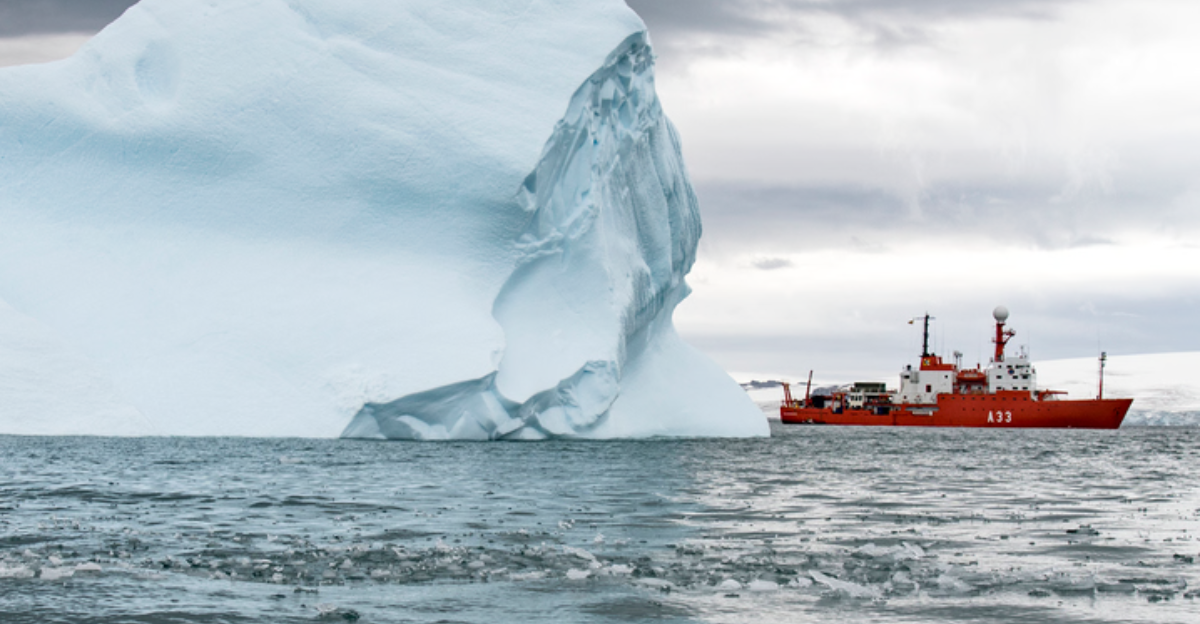
Perhaps the scariest part of this slowdown is how it feeds itself. As the ACC weakens, Antarctic ice melts faster. That melting ice dumps more freshwater into the ocean, which further weakens the current. It’s a vicious cycle with no clear way to stop it once it reaches a tipping point. The more this happens, the more Antarctica destabilizes, and the closer we get to a future where massive ice sheets collapse entirely.
Could This Lead to a “Day After Tomorrow” Scenario?

The idea of a sudden climate shift causing instant global catastrophe sounds like a Hollywood movie, but it’s not completely far-fetched. Scientists have already been monitoring a similar current, the Atlantic Meridional Overturning Circulation (AMOC), which is also showing signs of slowing. A collapse of major ocean currents like the ACC and AMOC wouldn’t freeze the planet overnight like in the movie, but it could cause abrupt and dramatic climate shifts that would be impossible to reverse.
How Close Are We to a Tipping Point?
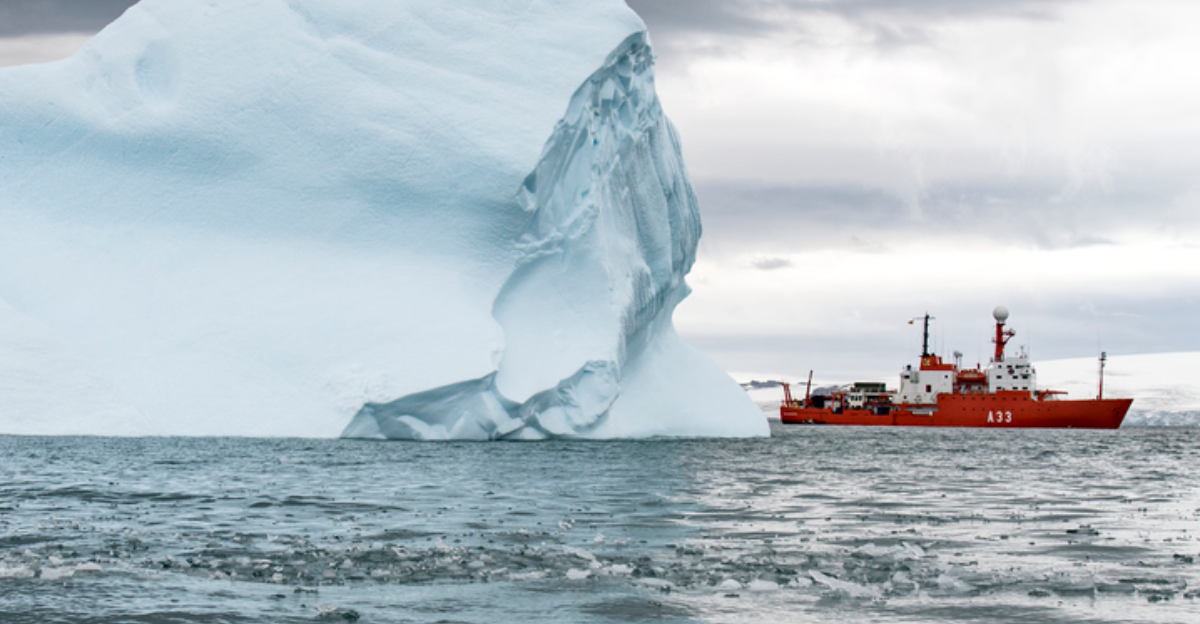
Scientists warn that the world’s ocean currents are reaching a critical point. Some models suggest that if current emission rates continue, the AMOC could collapse by 2050. The ACC, while stronger, is already slowing down faster than expected. The problem with tipping points is that once they’re reached, they don’t just slow down further—they collapse. And once that happens, there’s no fixing it.
What This Means for You

This isn’t just an issue for climate scientists—it’s a problem that will affect everyone. A weaker ACC means more extreme weather events in every part of the world. It means food shortages due to disrupted ocean fisheries. It means rising sea levels that could force millions of people to relocate. Even if you don’t live near the ocean, your life will be impacted by the changes this current is going through.
Can We Fix This?
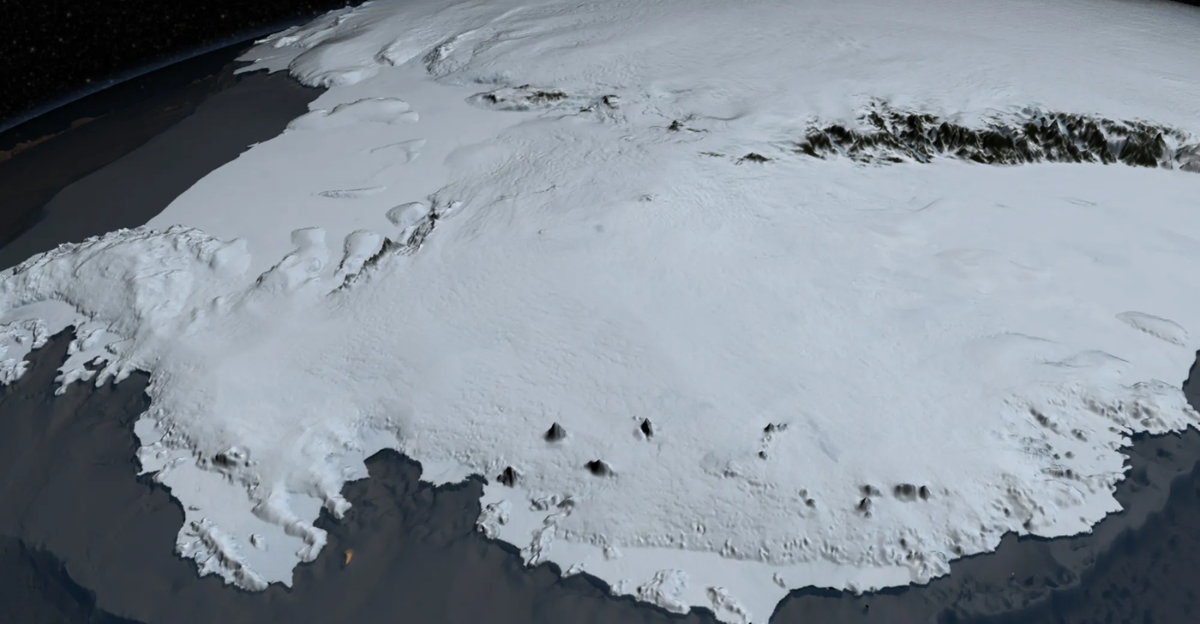
Scientists agree that the only real way to stop this is to address the root cause: climate change. That means cutting carbon emissions, protecting Antarctic ice sheets, and exploring geoengineering solutions to stabilize ocean circulation. Some researchers are looking into artificial methods to slow ice melt, but these ideas are still in early stages. The most effective solution is also the hardest—reducing the damage we’re doing to the planet before it’s too late.
The Future If We Ignore the Warning Signs

If the ACC continues to slow, we could be looking at a future where global climate patterns become completely unpredictable. Coastal cities could disappear under rising waters. Extreme weather events could become more common and deadly. Global food supplies could be thrown into crisis. This isn’t just a distant threat—it’s something happening right now. Really, the only question is how bad we’re willing to let it get.
The Ocean’s Most Powerful Current Is Weakening, and That’s a Global Crisis
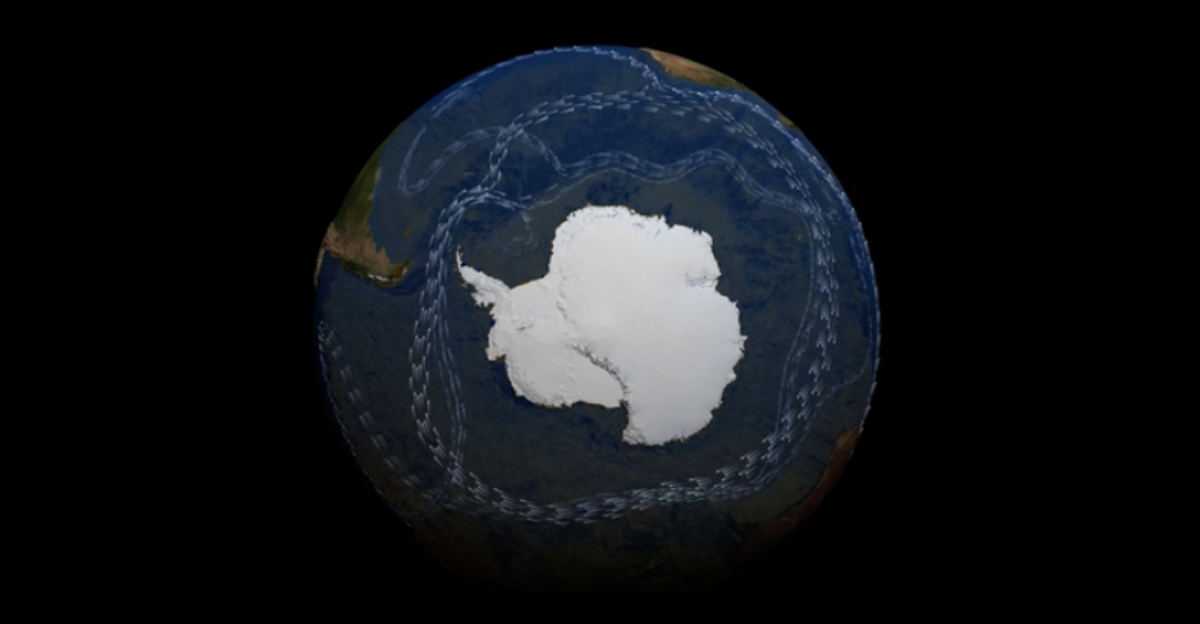
The Antarctic Circumpolar Current has shaped Earth’s climate for millions of years, but now, human activity is throwing it off balance. If this current continues to weaken, the consequences will be felt worldwide—from rising seas and stronger storms to failing ecosystems and collapsing food chains. The ocean isn’t just a distant body of water—it’s the heart of our planet’s climate system. If it stops working properly, everything else falls apart.
Explore more of our trending stories and hit Follow to keep them coming to your feed!

Don’t miss out on more stories like this! Hit the Follow button at the top of this article to stay updated with the latest news. Share your thoughts in the comments—we’d love to hear from you!







